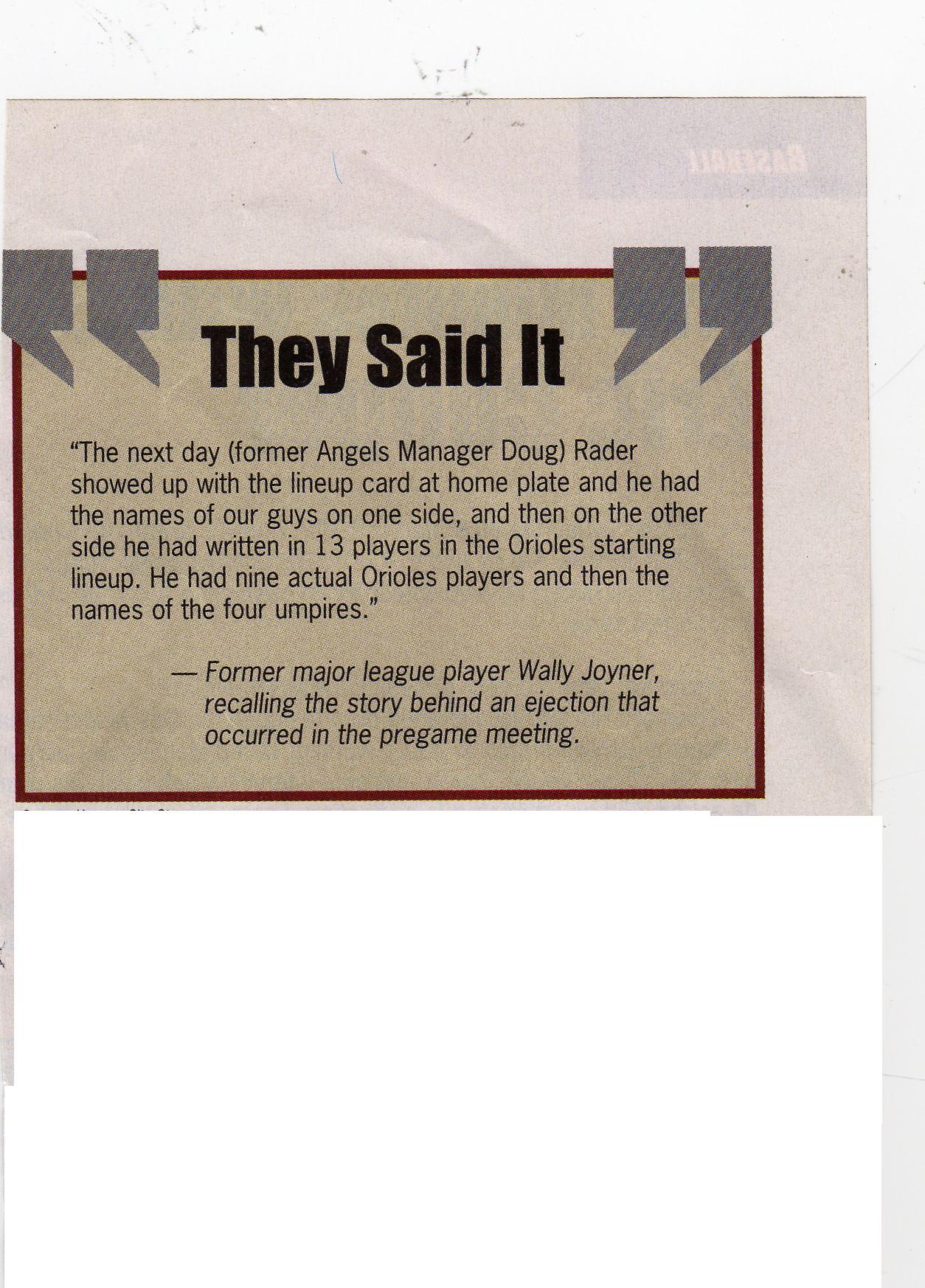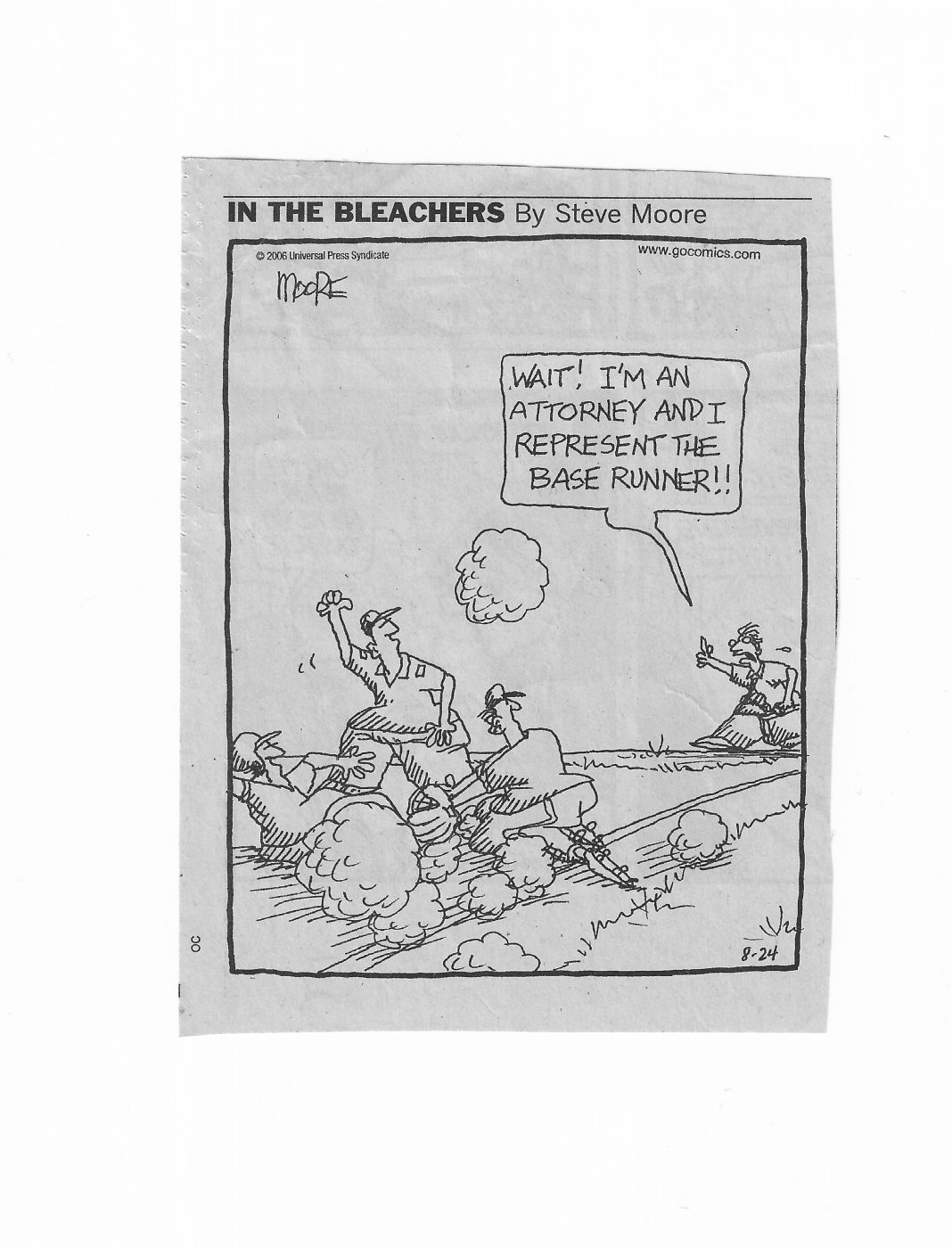There are multiple articles on this Locker Room website which deal with interactions between umpires and coaches. You should also read these articles: Connecting with Coaches, Misconduct, Warnings by Rule, What You Do Not Say to Coaches, Comments and Gestures, Managing Arguments Effectively, and Are You Approachable?
A rule change in the 2016-2017 NCAA Rule Book, and a Point of Emphasis that year, states that coaches should not be allowed on the field to question judgment calls. These questions disrupt the flow of the game and will result in a warning for the first violation and an ejection for each subsequent violation in the game. And a new rule is added to the 2024-2025 rule book: Assistant coaches may not leave their position in the dugout or bullpen area to appeal, question, or argue on the field. EFFECT—The violator shall be immediately ejected.
Call to mind, after an umpire makes a judgment call and imposes the Effect, a coach can question the imposition of the penalty, which is a dispute of the rules. These types of questions should be allowed and explained by the calling umpire and should not be deemed as questioning the judgment of the umpire.
There will often be a difference of opinion by a coach after a close play. Umpires need to differentiate between a legitimate discussion and an argument which is based solely on the umpire’s judgment. The first time a coach engages an umpire in a discussion about a judgement call, listen to what the coach has to say once, then tell the coach it is a judgment call and the discussion is over. If the coach then continues to argue, explain that the conversation is over, and the game must be continued without further delay.

Umpires need to be extra alert when a coach comes out a second time. If the coach brings up a previous call, stop the coach immediately and ask if they have a question about the just-made call. If the question is solely about the judgment on the current call, it is time to issue a warning.
Although a coach or player may, upon occasion, request feedback on a judgment call as long as it is not made in an argumentative fashion and does not delay the game, there are certain calls which cannot be changed, per rule or the CCA Manual.
These calls are the responsibility of the calling umpire and for the most part that umpire is close to the play and usually has an unobstructed view of the play. These calls cannot be argued or changed:
• Required equipment or uniform regulations
• Positions of offensive or defensive teams at the start of the game, between innings, and during pitching changes
• Positions of offensive and defensive teams while the ball is live
• Media format and time allowed between innings
• Violation of No Huddle Defense
• Illegal pitch
• Substance on ball
• Intentionally pitching at batter or umpire
• Illegally batted ball (brief explanation to the coach the first time only)
• Balls or strikes
• Checked swing decision
• Leaving a base before the pitcher releases the pitch
• Infield fly call
• Look-back rule
• Ejections of players or coaches
• Physical contact with umpire or opponent
• Team personnel leaving team area to join a brawl
In the effort to be approachable on the field and show respect to coaches, this procedure is encouraged if a coach does approach the calling umpire to apparently argue one of these calls:
• Allow the coach to speak first; do not immediately start talking first about arguing judgment calls.
• Regardless of what the coach says (why did you make that call…go for help…etc.), tell the coach that it is your call only; it is a judgment call; and it cannot be changed (for an illegal pitch, it is appropriate to give a short explanation of the violation, but do not allow the coach to argue the point).
• If the coach replies, give the coach a warning – “coach, the rule is clear on this. You cannot continue to argue a judgment call which cannot be changed. I must now issue you a warning for continuing to argue a judgment call.
• Ask the coach politely to return to the dugout (or coach’s box if appropriate).
• If the coach continues to argue, the only option is to eject the coach.

